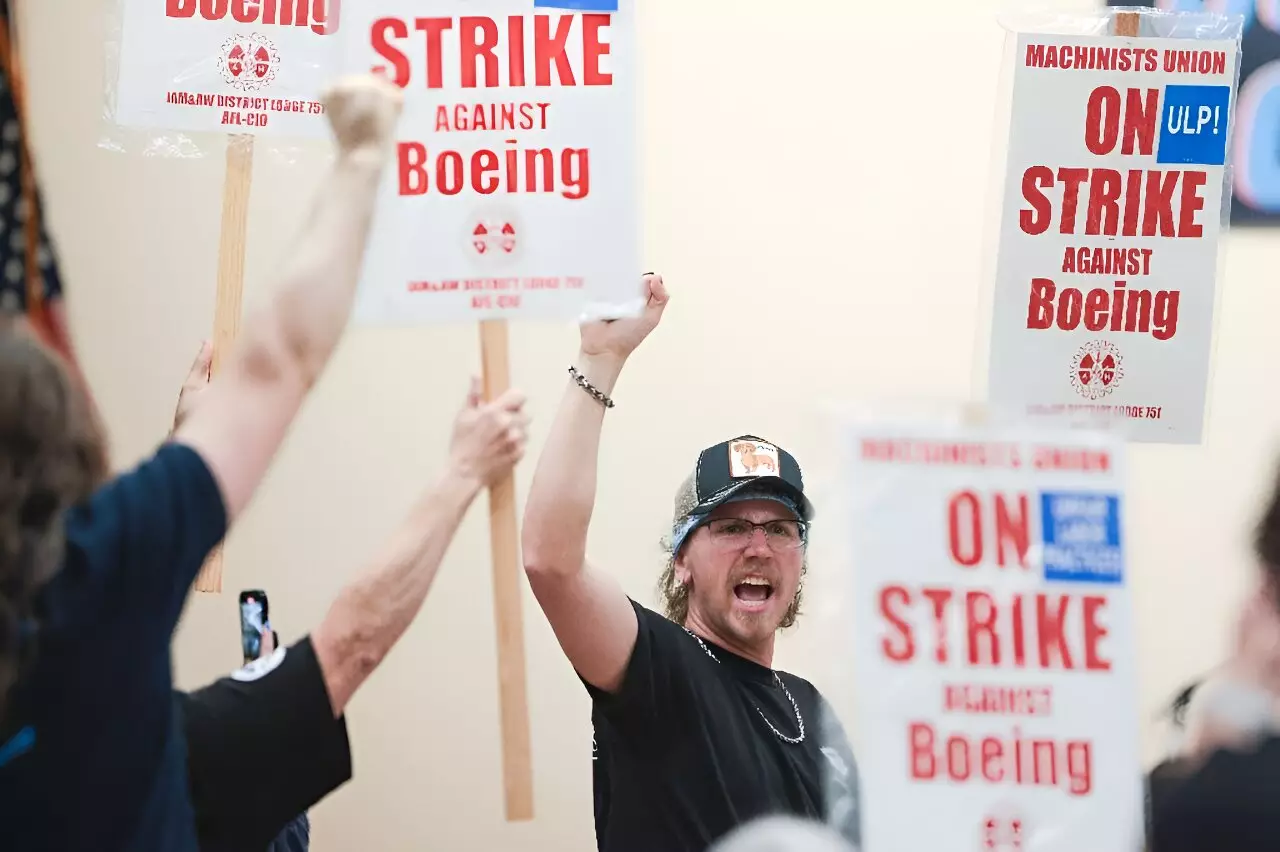Recent developments between Boeing and its striking factory workers have marked a significant moment in labor relations in the United States. Following a decisive vote where an overwhelming majority of workers rejected Boeing’s proposed contract, the company now faces the first major strike it has experienced in 16 years. This labor action, initiated by over 33,000 members of IAM-District 751, underscores the growing discontent among employees regarding stagnant wages and workplace conditions. As discussions between the union and federal mediators are set to resume, the stakes for both sides have never been higher.
The vote to reject Boeing’s proposal, with an astonishing 94.6 percent against, sent a clear message: workers are frustrated and no longer willing to accept inadequate compensation. Coupled with a striking 96 percent vote in favor of a strike, it is evident that the frontline workers feel undervalued despite their critical role in the aviation giant’s operations. Union leaders have emphasized the importance of this moment, encouraging members to maintain their presence on the picket lines and to stand united in their demands. The union’s call for solidarity among workers highlights a broader trend where employees are increasingly willing to fight for their rights and economic well-being.
Boeing has expressed its desire to return to negotiations, indicating that the company is keen to resolve the impasse quickly. However, the reality of the strike has already begun taking a toll on the company, leading to the suspension of operations at key assembly plants. Notably, the delays associated with the 737 MAX and 777 production lines are detrimental to Boeing’s already troubled recovery efforts. Amidst rising inflation and an economic climate that puts additional pressure on workers, the newly appointed CEO Kelly Ortberg finds himself facing not only operational challenges but also the urgent need to address employee grievances comprehensively.
While Boeing’s offer included a proposed 25 percent wage increase over four years, many workers consider this insufficient given a decade of stagnant wages that have failed to keep pace with the cost of living. Workers have expressed feelings of betrayal over what they perceive as a dismissive approach to their financial struggles. The disparity between executive compensation and worker wages has fueled the growing discontent, as many employees feel that their hard work and dedication to the company have not been matched by corporate accountability.
The successful organization and resolve displayed by the Boeing workforce reflect a significant shift in labor dynamics not only within the company but across various industries in the United States. As workers increasingly embrace collective action to push for better wages and working conditions, this strike could set a precedent for other labor disputes. The upcoming negotiations, facilitated by federal mediators, will offer an essential test of Boeing’s commitment to addressing its workers’ concerns and could very well shape the future landscape of labor relations in the country. The resolute stance taken by Boeing’s workers may serve as a catalyst for a renewed wave of labor activism, insisting on respect and fairness within the workplace.


Leave a Reply